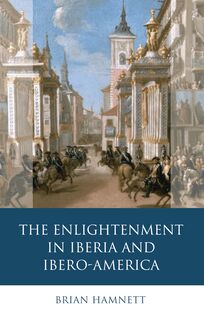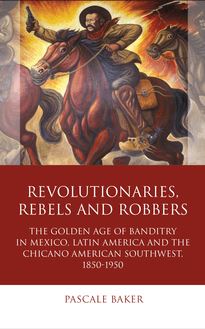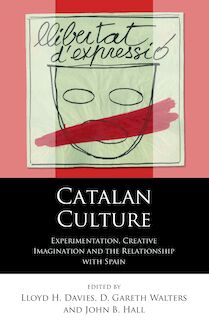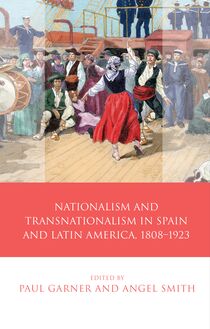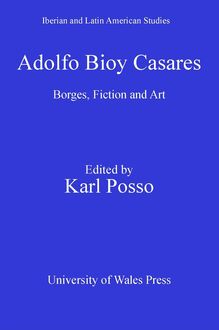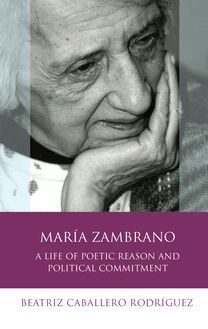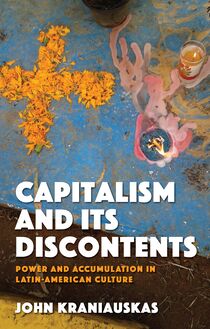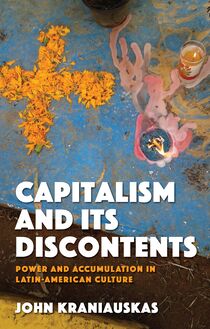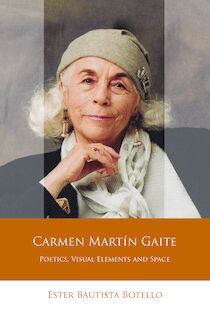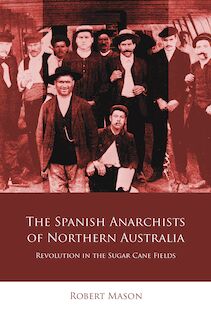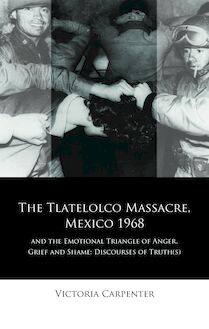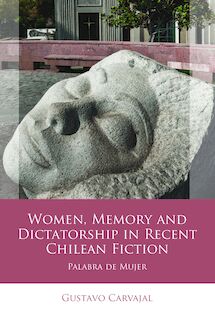-
 Univers
Univers
-
 Ebooks
Ebooks
-
 Livres audio
Livres audio
-
 Presse
Presse
-
 Podcasts
Podcasts
-
 BD
BD
-
 Documents
Documents
-
- Cours
- Révisions
- Ressources pédagogiques
- Sciences de l’éducation
- Manuels scolaires
- Langues
- Travaux de classe
- Annales de BEP
- Etudes supérieures
- Maternelle et primaire
- Fiches de lecture
- Orientation scolaire
- Méthodologie
- Corrigés de devoir
- Annales d’examens et concours
- Annales du bac
- Annales du brevet
- Rapports de stage
La lecture à portée de main
Vous pourrez modifier la taille du texte de cet ouvrage
Découvre YouScribe en t'inscrivant gratuitement
Je m'inscrisFantastic Short Stories by Women Authors from Spain and Latin America , livre ebook
Découvre YouScribe en t'inscrivant gratuitement
Je m'inscrisEn savoir plus
Vous pourrez modifier la taille du texte de cet ouvrage
En savoir plus

Description
PG:
1. García, P. Space and the Postmodern Fantastic in Contemporary Literature: the Architectural Void. New York; Oxon: Routledge, 2015. pp. 187. (Top international academic press. Ranked 6 worldwide in SPI-Scholarly Publishers Indicators)
2. García, P. Displacing the Self in Fiction: Identity and Exile in Thomas Bernhard and Agota Kristov. Saarbrucken: Lambert Academic Publishing, 2010. pp. 68.
3. García, P.; López-Pellisa, T.; Velázquez, R. (eds.) Expresiones del horror en la ficción hispana. Madrid: Aluvión, 2018. [Forthcoming]
4. Roas, D.; Garcia, P. (eds.). Visiones de lo fantástico (aproximaciones teóricas). Malaga: E.D.A, 2013. pp. 190.
TL-P:
In progress:
López-Pellisa, Teresa y Silvia K. Ares (ed.): Historia de la ciencia ficción en Latinoamérica. Desde los orígenes hasta la modernidad I, Iberoamericana/Vervuert, 2018.
García, P.; López-Pellisa, T.; Velázquez, R. Expresiones del horror en la ficción hispana. Madrid: Aluvión, 2018.
López-Pellisa, Teresa y Silvia K. Ares (ed.): Historia de la ciencia ficción en Latinoamérica. Desde la modernidad hasta la posmodernidad, Iberoamericana/Vervuert, 2019.
López-Pellisa, Teresa (2019): Adolfo Bioy Casares y la ciencia ficción: la realidad virtual en La invención de Morel de Adolfo Bioy Casares, Fondo de Cultura Económica, 2019.
López-Pellisa, Teresa y Ricard Ruiz Garzón (ed.): Insólitas. Antología de escritoras de lo fantástico, Páginas de Espuma, 2019.
1. López-Pellisa, Teresa (2015): Patologías de la realidad virtual. Cibercultura y ciencia ficción, Fondo de Cultura Económica. ISBN: 9788437507316.
2. López-Pellisa, Teresa (ed. and prologue) (2018): Historia de la ciencia ficción en la cultura española, Iberoamericana/Vervuert, Iberoamericana: 978-84-16922-81-9, ISBN Vervuert: 978-3-95487-709-6, E-ISBN: 978-3-95487-710-2.
3. Casas, Ana y López-Pellisa, Teresa (ed.) (2017): Diálogos interartísticos: (Cultura, Literatura y Artes), e.d.a. Libros, Málaga. ISBN: 978-84-92821-84-6.
4. Roas, David y López-Pellisa, Teresa (ed.) (2014): Visiones de lo fantástico en la cultura española (1970-2012), EDA Libros, Málaga. 978-84-92821-69-3.
5. López-Pellisa, Teresa (selection and edition) (2018): Las otras. Antología de mujeres artificiales, Eolas Ediciones, Colección Las puertas de lo posible, León, España. Edición española revisada y modificada. ISBN: 978-84-17315-11-5.
6. López-Pellisa, Teresa (selection and prologue) (2016): Las otras. Antología de mujeres artificiales, DiazGrey Editores, Nueva York, EEUU, ISBN: 9781946022028.
7. López-Pellisa, Teresa, and Lola Robles (selection and edition) (2018): Poshumanas. Escritoras españolas de ciencia ficción, La Ballena, Madrid.
8. Robles, Lola and López-Pellisa, Teresa (seletion and edition) (2018): Distópicas. Escritoras españolas de ciencia ficción, La Ballena, Madrid. 978-84-8344-625-6
13. Other publications:
PG:
Peer-reviewed articles
- García, P. "Spanish and Latin American women writers in the Fantastic Canon: a Paratextual Study of Anthologies (1946-2015)" in Special Issue: "Gender and the Fantastic in the Hispanic Context". Bulletin of Hispanic Studies, 2019. [Forthcoming] [Quartile 2- SJR: Scientific Journal Ranking index –, H-index 6]
- García, P. "Paris and the Birth of the Modern Fantastic during the Nineteenth Century". CLCWeb: Comparative Literature and Culture. 19.1, 2017. Online: <https://doi.org/10.7771/1481-4374.2875> [Q1 journal in SJR index]
- García, P. "The Rhizome Text: Implementing an Intertextual Affective Approach to L2 Spanish Writing". New Writing. Vol. 13, 2016, pp. 17-23. Online: <https://doi.org/10.1080/14790726.2015.1131302> [Q1 journal in SJR index]
- García, P. "J.G. Ballard’s One-Man Worlds". Reflexiones marginales: revista de saberes de frontera (UNAM). 5(28), 2015. Online: http://reflexionesmarginales.com/3.0/j-g-ballards-one-man-worlds/
- García, P. "The Fantastic Hole: Towards a Definition of the Fantastic Transgression as a Phenomenon of Space". Brumal: Research Journal on the Fantastic. Vol. 1, 2013, pp. 15-35.
- García, P. "El espacio como sujeto fantástico: el ejemplo de ‘Los palafitos’ (Ángel Olgoso, 2007)". Pasavento. Revista de Estudios Hispánicos. Vol. I.1, 2013, pp. 113-124.
- García, P. "The Fantastic of Place versus the Fantastic of Space". Revista Letras&Letras. Vol. 29.1, 2013, pp. 543-557.
- García, P. "Horizontal Vertigo and Psychasthenia: Border Distortions in the Fantastic Text" in Schimanksi, J.; Nyman, J. (eds). Border Images, Border Narratives. [Submitted].
Peer-reviewed book chapters
- García, P. "Living Heads: The Erotics of the Decapitated Female Revenant in 19th Century Fiction" in Imbert, J-P.; Gómez de Tuddo, A. (eds.) The Great Skull Project. Mexico: Urobos Basilisco; Skullcandy Mexico, 2019. [Forthcoming]
- García, P. "José María Merino: Memorias del lugar y lugares de la memoria" in Encinar, A.; Casas, A. (eds.) El arte de contar. Los mundos ficcionales de Luis Mateo Díez y José María Merino. Cátedra, 2017, pp. 217-231. (Top academic press in Hispanic Studies, Ranked first in SPI-Scholarly Publishers Indicators)Roas, D.; Álvarez, N.; García, P. "Narrativa 1980-2015" in Roas, D. (dir.). Historia de lo fantástico en la cultura española contemporánea (1900-2015). Madrid/Frankfurt: Iberoamericana Vervuert, 2017, pp. 195-215. (Top academic press in Hispanic Studies)
- García, P. "El diablo arquitecto: orígenes y evolución de un motivo literario". In: Roas, D. (ed.). El monstruo fantástico: visiones y perspectivas. Madrid: Aluvión, 2017, pp. 103-119.
- García, P. "Distorsiones espaciales: la maqueta fantástica como transgresión entre continente y contenido" in Álvarez, N. et. al. (eds.). Territorios de la imaginación. Poéticas ficcionales de lo insólito en España y México. León: Universidad de León, 2016, pp. 73-82.
- García, P. "The Lighthouse (Edgar Allan Poe, 1849; Cristina Fernández Cubas, 1997): from the ‘Egocentred’ to a ‘Geocentred’ Analysis" in B. Lejuez and O. Springer. Shipwreck and Island Motifs in Literature and the Arts. Amsterdam: Brill/Rodopi, 2015, pp. 97-108.
- García, P. "La frase umbral: desliz al espacio fantástico" in D. Roas and P. García (eds.) Visiones de lo fantástico (aproximaciones teóricas). Malaga: E.D.A, 2013, pp. 27-38.
- García, P. "Los escondites de la realidad: el espacio fantástico en el relato Mi hermana Elba de Cristina Fernández Cubas" in Honores, E. and Portals, G. (eds.). Lo fantástico en la literatura y arte en Latinoamérica. Portals Zubiate: Lima, 2010, pp. 105-116.
TL-P:
Peer-reviewed articles:
- López-Pellisa, Teresa (2018): «Alucinadas I y II: el retorno de Metis y las escritoras españolas de ciencia ficción», in "Ciencia ficción española", Sportula.
- López-Pellisa, Teresa (2017): «El síndrome del misticismo agudo en la narrativa de ciencia ficción peruana: José B. Adolph», Revista Iberoamericana, Vol. LXXXIII, núm. 259-260, pp. 365-381. ISSN: 00349631. SJR: H Index 3 Q3, 0,139.
- López-Pellisa, Teresa (2017): «El síndrome de Narciso y el autor como avatar postorgáncio en las narrativas del futuro: Carmen Boullosa y Alex Rivera», Tropelías: Revista de Teoría de la Literatura y Literatura Comparada, nº27, pp. 147-159.
- López-Pellisa, Teresa (2017): «Las dramaturgas españolas y lo distópico: Teatro y ciencia ficción en el siglo XXI», Annals of Contemporary Spanish Literature (ALEC), Philadelphia, Society of Spanish and Spanish-American Studies, United States, vol. 42, nº2, pp. 147-159. ISSN 0272-1635. SJRC, H index 4, Q3.
- López-Pellisa, Teresa (2017): «Alucinadas: Women Writers of Spanish Science Fiction», Sciencie-Fiction Studies, 132, 44.2, July, pp. 311-325. ISSN: 00917729. SJR, H Index 9, Q2, 0,205
- López-Pellisa, Teresa (2015): «Pandoric Dystopias in Latin American Science Fiction: robotic and biogenetic women», Literature and Arts of the Americas, 48, nº1-90, Spring, 2015, pp. 79–84, ISSN: 08905762. SJR: H Index: 3, Q2, 0,102.
- López-Pellisa, Teresa (2013): «La pantalla en escena: ¿es teatro el ciberteatro?», Revista Letral. Revista Electrónica de Estudios Transatlánticos en Literatura, nº 11, diciembre, 2013, pp. 24-39. ISSN 1989-3302. SJR: H Index 1 Q3, 0,101
- López-Pellisa, Teresa (2013): «Metástasis de los simulacros y metadiégesis digital en La novela perfecta (2006) de Carmen Boullosa», Pasavento. Revista de Estudios Hispánicos, nº2, pp. 101-114. ISSN: 2255-4505.
- López-Pellisa, Teresa (2013): «Autómatas y robots: fantoches tecnológicos en R.U.R. de Karel Capek y El señor de Pigmalión de Jacinto Grau», Annals of Contemporary Spanish Literature, Society of Spanish and Spanish-American Studies, vol. 38, nº3, pp. 137/637-159/659. ISSN 0272-1635. SJR: H Index 4, Q2, 0,113.
- López-Pellisa, Teresa (2012): «Virtualidades distópicas en la ficción analógica: La invención de Morel de Adolfo Bioy Casares», Revista Iberoamericana, vol. LXXVIII, 2012 no. 238-239, Monográfico Silvia Ares (coord.): La ciencia-ficción en América Latina: entre la mitología experimental y lo que vendrá, pp. 73-90. SJR: H Index 3 Q1, 0,139.
- López-Pellisa, Teresa (2012): «La literatura y el viaje en el tiempo: Los años eternos de Ignacio García May», Eu-topías. Revista de interculturalidad, comunicación y estudios europeos, Université de Genève y Universidad de Valencia, vol. 4, pp. 1-12. ISSN: 2174-8454 / eISSN: 2340-115X.
Peer-reviewed book chapters:
- López-Pellisa, Teresa: «Las hijas de Metis: escritoras de ciencia ficción en Latinoamérica y España», Jonatán Martín Gómez y José Sullivan, Recalibrando los circuitos de la máquina, In press.
- López-Pellisa, Teresa: «Escritoras de ciencia ficción en Latinoamérica: bioética y biopolítica en Laura Ponce y Alicia Fenieux», en Silvia Ares y Ezequiel Rosso, Companion to Latin American Science Fiction Studies, Peter Lang, in press.
- López-Pellisa, Teresa: «¿Sueñan los hombres con muñecas eléctricas?: poshumanismo y muñecas tamaño natural», in Julia Ramírez Blanco (ed.): Monstruos, in press.
- López-Pellisa, Teresa (Ed. y Dirección) (2018): «Introducción: desde el inicio hasta la naturalización», Historia de la ciencia ficción en la cultura española, Iberoamericana/Vervuert, Iberoamericana, pp. 9-46.
- López-Pellisa, Teresa (2018): «Teatro de ciencia ficción español 1980-2015», López-Pellisa, Teresa (ed.): Historia de la ciencia ficción en la cultura española, Iberoamericana, pp. 251-278.
- López-Pellisa, Teresa (2018): «A personagem feminina artificial: as mulheres robótico, virtual, digitais e de biotecnologia na literatura Iberoamericana», in press.
- López-Pellisa, Teresa (2018): «El síndrome de Pandora en las mujeres artificiales de José María Merino: "Una leyenda" y "Celina y Nelima"», en Ana Casas y Ángeles Encinar (eds.). El gran fabulador. La obra narrativa de José María Merin, Madrid, Visor, 2018, pp. 135-150. ISBN: 978-84-9895-198-1.
- López-Pellisa, Teresa (2018): «Tecnomimetismo infonaturalista y antropoide: del cuadro a la realidad virtual», Arte y Naturaleza, Granada, Comares, in press.
- López-Pellisa, Teresa y Matteo de Beni (2016) «Lo fantástico en el teatro español 1960-2010», en David Roas (ed.) Lo fantástico en la cultura española, Iberoamericana, pp. 241-263.
- López-Pellisa, Teresa (2015): «Incas y extraterrestres en la ciencia ficción peruana contemporánea: José B. Adolph y Daniel Salvo», in Usandizaga, Helena y Ferrús, Beatriz (eds.): Fragmentos de un nuevo pasado. Inventario de mitos prehispánicos en la literatura latinoamericana actual, Series Hispanic Studies: culture and Ideas, vol. 67, Oxford, Peter Lang, pp. 181-204.
- López-Pellisa, Teresa (2012): «El Síndrome de Pandora: Máquinas de amar de Pilar Pedraza», in Francisca Vilches-de Frutos and Pilar Nieva-de la Paz (ed.) Imágenes Femeninas en la Literatura Española y las Artes Escénicas (Siglos XX-XXI), Cincinnati, Society of Spanish and Spanish-American Studies, pp. 315-333. ISBN: 978-0-89295-134-5.
- López-Pellisa, Teresa (2009): «El digitalismo en La Invención de Morel» en Ensayos sobre literatura fantástica y ciencia ficción, Madrid, Universidad Carlos III, pp. 893-911. ISBN: 978-84-691-8732-6.
- López-Pellisa, Teresa (2009): «Teatro y cibercultura: Marcel·lí Antúnez», in Begoña Regueiro y Ana Rodríguez, Lo real, imaginado, soñado, creado: Realidad y literatura en las letras hispánicas, Vigo, Editorial Academia del Hispanismo, pp. 328-337. ISBN 978-84-96915-50-3.
- López-Pellisa, Teresa (2008): «La metamorfosis tecno-hermética en Bioy Casares y Philip K.Dick», in Isabel Clúa y Pau Pitarch, ¡Pase y vean! Estudios culturales, Barcelona, Editorial UOC, pp. 173-183. ISBN: 978-84-9788-726-7.
- López-Pellisa, Teresa (2006): «Antes muerta que sencilla: el artefacto femenino en Bioy Casares», in Cesar Antonio Morón Espinosa y José Manuel Ruiz Martínez (ed.): En Teoría hablamos de Literatura, Granada, Editorial Dauro, pp. 97-103.
- López-Pellisa, Teresa (2006): «Las perversiones discursivas en la estructura volitiva de La Invención de Morel» en Mercedes Arriaga, et ál. (ed.), Mujeres, espacio y poder, Sevilla, Arcibel Editores, pp. 394-400. ISBN: 84-934085-0-6.
- López-Pellisa, Teresa (2005): «La tecno-utopía digitalista de Morel», in Domínguez Pérez, Mónica, Dolores Fernández López y Fernando Rodríguez-Gallego López (eds.): Campus Stellae. Haciendo camino en la investigación, Santiago, Universidad de Santiago de Compostela, vol. 2, pp.307-315. ISBN: 84-9750-612-X.
Coordination of Special Issues in peer-reviewed journals:
- López-Pellisa, Teresa y Ana Casas (coord..) (2017): Monográfico «Narrativas transmedia, hipermedia e intermedia: teoría y crítica», Tropelías: Revista de Teoría de la Literatura y Literatura Comparada, nº27 (2017), pp. 1-159.
- López-Pellisa, Teresa (coord..) (2016): Monográfico «Teatro y otras artes: danza, música, pintura y tecnología», Telón de Fondo. Revista de Teoría y Crítica Teatral, nº23, July 2016.
- López-Pellisa, Teresa and Matteo de Beni (coord.) (2014): Monográfico «Teatro Fantástico (siglos XX y XXI», Brumal. Revista de Investigación sobre lo Fantástico / Research Journal on the Fantastic, Vol. II, nº2, winter 2014. ISSN: 2014-7910
- López-Pellisa, Teresa (coord.) (2013): Monográfico «Cibercultura y Realidad Virtual», Pasavento. Revista de Estudios Hispánicos, July, Vol. I, Nº2. ISSN: 2255-4505
The fantastic has been particularly prolific in Hispanic countries during the twentieth and twenty-first centuries, largely due to the legacy of short-story writers as well as the Latin-American boom that presented alternatives to the model of literary realism. While these writers’ works have done much to establish the Hispanic fantastic in the international literary canon, women authors from Spain and Latin America are not always acknowledged, and their work is less well known to readers. The aim of this critical anthology is to render Hispanic female writers of the fantastic visible, to publish a representative selection of their work, and to make it accessible to English-speaking readers. Five short stories are presented by five key authors. They attest to the richness and diversity of fantastic fiction in the Spanish language, and extend from the early twentieth to the twenty-first century, covering a range of nationalities, cultural references and language specificities from Spain, Mexico, Puerto Rico and Argentina.
Acknowledgements
The Fantastic: Towards a Feminist Perspective
Emilia Pardo Bazán - ‘La resucitada’ (1912)
Amparo Dávila - ‘El huésped’ (1959)
Rosario Ferré - ‘La muñeca menor’ (1976)
Cristina Fernández Cubas - ‘El ángulo del horror’ (1990)
Ana María Shua - ‘Vida de perros’ (2000)
General Bibliography
Temas de debate y discusión
Selected Vocabulary
Index
Other titles in the series
Sujets
Informations
| Publié par | University of Wales Press |
| Date de parution | 15 août 2019 |
| Nombre de lectures | 0 |
| EAN13 | 9781786835109 |
| Langue | English |
Informations légales : prix de location à la page 0,1250€. Cette information est donnée uniquement à titre indicatif conformément à la législation en vigueur.
Extrait
IBERIAN AND LATIN AMERICAN STUDIES
Fantastic Short Stories by Women Authors from Spain and Latin America
Series Editors
Professor David George (Swansea University) Professor Paul Garner (University of Leeds)
Editorial Board
Samuel Amago (University of Virginia) Roger Bartra (Universidad Autónoma de México) Paul Castro (University of Glasgow) Richard Cleminson (University of Leeds) Catherine Davies (University of London) Luisa-Elena Delgado (University of Illinois) Maria Delgado (Central School of Speech and Drama, London) Will Fowler (University of St. Andrews) David Gies (University of Virginia) Jo Labanyi (New York University) Gareth Walters (Swansea University) Duncan Wheeler (University of Leeds)
IBERIAN AND LATIN AMERICAN STUDIES
Fantastic Short Stories by Women Authors from Spain and Latin America
A Critical Anthology
EDITED BY PATRICIA GARCÍA AND TERESA LÓPEZ-PELLISA -->
UNIVERSITY OF WALES PRESS 2019
© The Contributors, 2019
All rights reserved. No part of this book may be reproduced in any material form (including photocopying or storing it in any medium by electronic means and whether or not transiently or incidentally to some other use of this publication) without the written permission of the copyright owner except in accordance with the provisions of the Copyright, Designs and Patents Act 1988. Applications for the copyright owner s written permission to reproduce any part of this publication should be addressed to the University of Wales Press, University Registry, King Edward VII Avenue, Cardiff, CF10 3NS.
www.uwp.co.uk
British Library CIP Data
A catalogue record for this book is available from the British Library.
ISBN 978-1-78683-508-6 e-ISBN 978-1-78683-510-9
The right of the contributors to be identified as authors of this work has been asserted in accordance with sections 77 and 79 of the Copyright, Designs and Patents Act 1988.
The publisher has no responsibility for the persistence or accuracy of URLs for any external or third-party internet websites referred to in this book, and does not guarantee that any content on such websites is, or will remain, accurate or appropriate.
Cover design: Olwen Fowler Cover image: Shiori Matsumoto, Private Time (2016), oil and acrylic on canvas. By permission.
Contents
Acknowledgements
The Fantastic: Towards a Feminist Perspective
Emilia Pardo Bazán La resucitada (1912)
Amparo Dávila El huésped (1959)
Rosario Ferré La muñeca menor (1976)
Cristina Fernández Cubas El ángulo del horror (1990)
Ana María Shua Vida de perros (2000)
Notes References General Bibliography Temas de debate y discusión Selected Vocabulary
Acknowledgements
T his critical anthology was made possible by financial support from the University of Nottingham, the Universidad Autónoma de Barcelona, the Institute of Modern Languages Research and the British Academy project Gender and the Fanstastic in Hispanic Studies (2017-18). For their advice and encouragement, we thank Prof. Catherine Davies as well as the Grupo de Estudios de lo Fantástico, directed by David Roas. For their help with the translations, we want to express our gratitude to our colleagues Simon Breden, Rocío Martínez and Steve Roberts, and specially Míde Ní Shúilleabháin for her invaluable thoroughness when reading the entire manuscript. Finally, this project would not have been completed without the time and space that the EURIAS programme at Helsinki Collegium for Advanced Studies has facilitated during 2018-19.
The Fantastic: Towards a Feminist Perspective
Patricia García
T his introduction discusses the etymology of the term fantastic and outlines different critical approaches as well as formal characteristics. This is followed by a brief transcultural historical overview on the evolution of the fantastic since its Gothic origins, including the often ignored relevance of women writers in this tradition.
Definitions of the Fantastic
The boundaries of the fantastic have long been the subject of controversy in literary criticism and in popular culture. We can nonetheless outline some theoretical parameters that allow for a better understanding of this narrative form. The fantastic often appears as a synonym of fantasy, of the supernatural or even associated with aesthetic representations of horror, the unusual, exotic or strange. In the Cambridge Dictionary Online the word is accompanied by the rather unhelpful explanatory label of not real ; in the Oxford Dictionary of British and World English by the formula remote from reality . The etymology of the word is, however, more revealing. The adjective phantastikos is related to the Greek phantos and phainein , visible and to show respectively. The verb phantazein means to make visible . These etymological roots suggest that the fantastic relates to the action of articulating and expressing (by rendering visible) something concerning our imagination. This type of logic corresponds with the etymology of what might be the best-known fantastic concept: the monster. From the Old French monstre (closely related to the verb montrer , in Spanish mostrar , to show) and the Latin root monere (to warn), the monster was traditionally thought to be the physical embodiment of a divine message sent to earth, a bad omen. The warning from the gods would take the shape of something unnatural, be this extraordinary size or a physical deformity. The etymology of both the fantastic and of the monster points to an important defining aspect of the supernatural: it is employed to render visible something hidden. As detailed in the following paragraphs, this feature has served as the point of departure for psychoanalytical and cultural theories of the fantastic, theories that regard the fantastic as a manifestation of something repressed in our psyche or in our culture. Regardless of the approach chosen to explore this form, its etymology remains relevant in the contemporary context: the fantastic is a way of expressing our fears and voicing our anxiety, as a society or as individuals, by means of an imaginary creature that transgresses the boundaries of what a culture considers the norm.
There are two main academic approaches to the fantastic in the arts: one that regards the fantastic as a synonym of the supernatural, while the other conceives it as a specific form (a subcategory) of the supernatural. The first of these approaches is dominant among scholars in English-speaking traditions, for example Eric S. Rabkin (1977), Kathryn Hume (1984), Neil Cornwell (1990), Brian Attebery (1992) and Lucie Armitt (1996). It is also the general approach adopted by the International Association of the Fantastic in the Arts in the United States. As a generic concept, the fantastic features interchangeably with that of fantasy literature to refer to any texts that deviate from realism. By this understanding, it embraces a variety of forms including horror, the Gothic, fables, the marvellous, science fiction, magical realism, fairy tales and myths. Scholars employing the fantastic as an umbrella term for all forms of the supernatural have tended to focus on the common denominator of all these forms. Some studies, for example, have approached the supernatural as a way of investigating the legacy of myths and folklore in our aesthetic construction of otherness and subversion. This point is made by Lucie Armitt, who regards the fantastic as a form transgressing boundaries, concerning itself with the world of the beyond (beyond the galaxy, beyond the known, beyond the accepted, beyond belief) (1996: 4). Therefore the fantastic should immediately alert us to the attendant difficulties it has coping with limits and limitations (1996: 4). Other studies examine the ability of fiction to construct a self-enclosed reality that violates our codes of logic. Most scholars claim a further integration of the supernatural as a narrative form within the exclusive canon of great literature and emphasise the importance of magic in storytelling as a means of taking control of an otherwise unmanageable reality. As Attebery remarks in this respect, [w]hen you convert history into story, you end up with precisely and only that - a story. And yet stories, by being different from nature or history, make nature accessible and history meaningful (1992: 141).
While agreeing on the inherently subversive discourse of the fantastic, this general approach is contested by another group of scholars, who champion a more precise aesthetic understanding of the fantastic in opposition to other forms of the supernatural. In this anthology, we follow this interpretation of the fantastic. We define the literary fantastic as a realistic text featuring an exception - a conflictive, supernatural element. The key term here is conflictive . By this definition, the fantastic differs from fantasy or the marvellous in that those two narrative forms present the supernatural as being normalised in their narrative world. The fantastic, in contrast, is always presented as a conflict within the fictional world: not only a moral violation, but also an ontological and epistemological impossibility. To emphasise this exceptional status within the norm, several tropes typically recur: for example, the negative discourse used to define the fantastic element ( un -natural, im -possible, extra -ordinary) and formulas expressing how its very presence challenges rational explanation.
In order better to appreciate the differences between non-mimetic genres (the marvellous vs. the fantastic, in this case), compare the following opening passages of three different works:
The Mole had been working very hard all the morning, spring-cleaning his little home. First with brooms, then with dusters; then on ladders and steps and chairs, with a brush and a pail of whitewash; till he had dust in his throat and eyes, and splashes of whitewash all over his black fur, and an aching back and weary arms. Spring was moving in the
-
 Univers
Univers
-
 Ebooks
Ebooks
-
 Livres audio
Livres audio
-
 Presse
Presse
-
 Podcasts
Podcasts
-
 BD
BD
-
 Documents
Documents
-
Jeunesse
-
Littérature
-
Ressources professionnelles
-
Santé et bien-être
-
Savoirs
-
Education
-
Loisirs et hobbies
-
Art, musique et cinéma
-
Actualité et débat de société
-
Jeunesse
-
Littérature
-
Ressources professionnelles
-
Santé et bien-être
-
Savoirs
-
Education
-
Loisirs et hobbies
-
Art, musique et cinéma
-
Actualité et débat de société
-
Actualités
-
Lifestyle
-
Presse jeunesse
-
Presse professionnelle
-
Pratique
-
Presse sportive
-
Presse internationale
-
Culture & Médias
-
Action et Aventures
-
Science-fiction et Fantasy
-
Société
-
Jeunesse
-
Littérature
-
Ressources professionnelles
-
Santé et bien-être
-
Savoirs
-
Education
-
Loisirs et hobbies
-
Art, musique et cinéma
-
Actualité et débat de société
- Cours
- Révisions
- Ressources pédagogiques
- Sciences de l’éducation
- Manuels scolaires
- Langues
- Travaux de classe
- Annales de BEP
- Etudes supérieures
- Maternelle et primaire
- Fiches de lecture
- Orientation scolaire
- Méthodologie
- Corrigés de devoir
- Annales d’examens et concours
- Annales du bac
- Annales du brevet
- Rapports de stage
